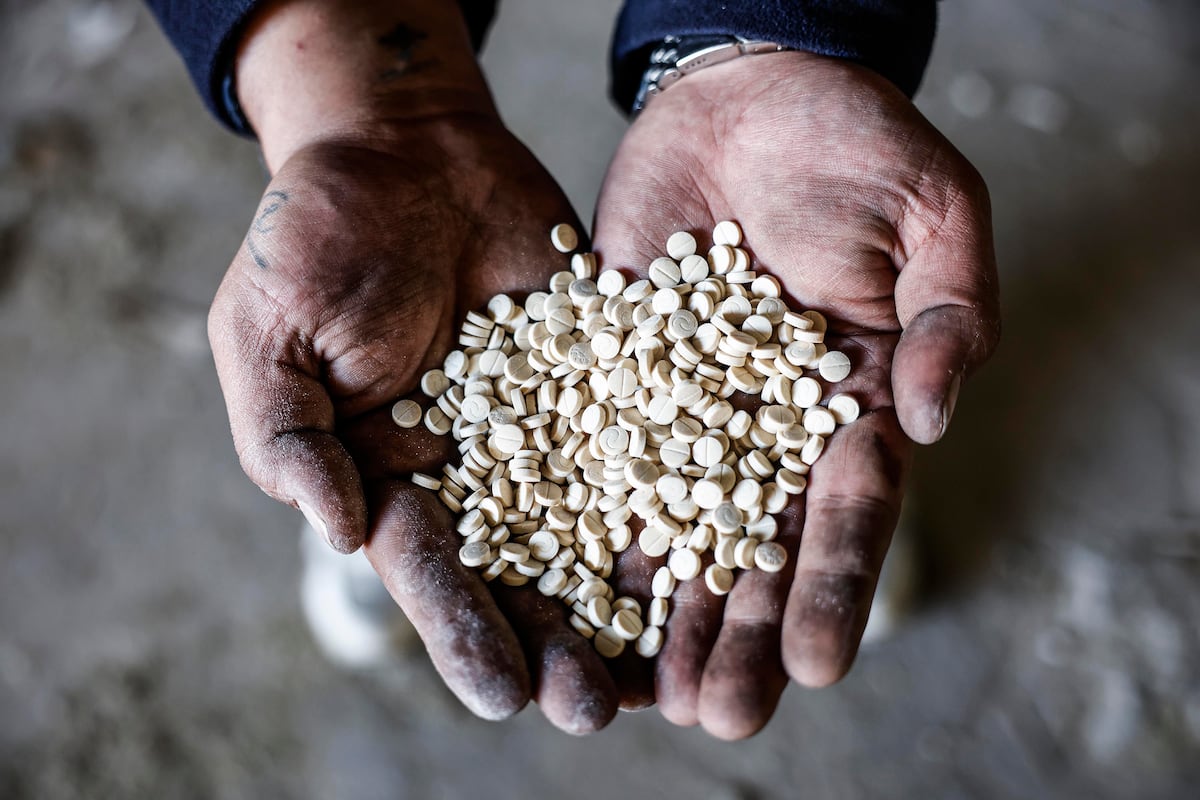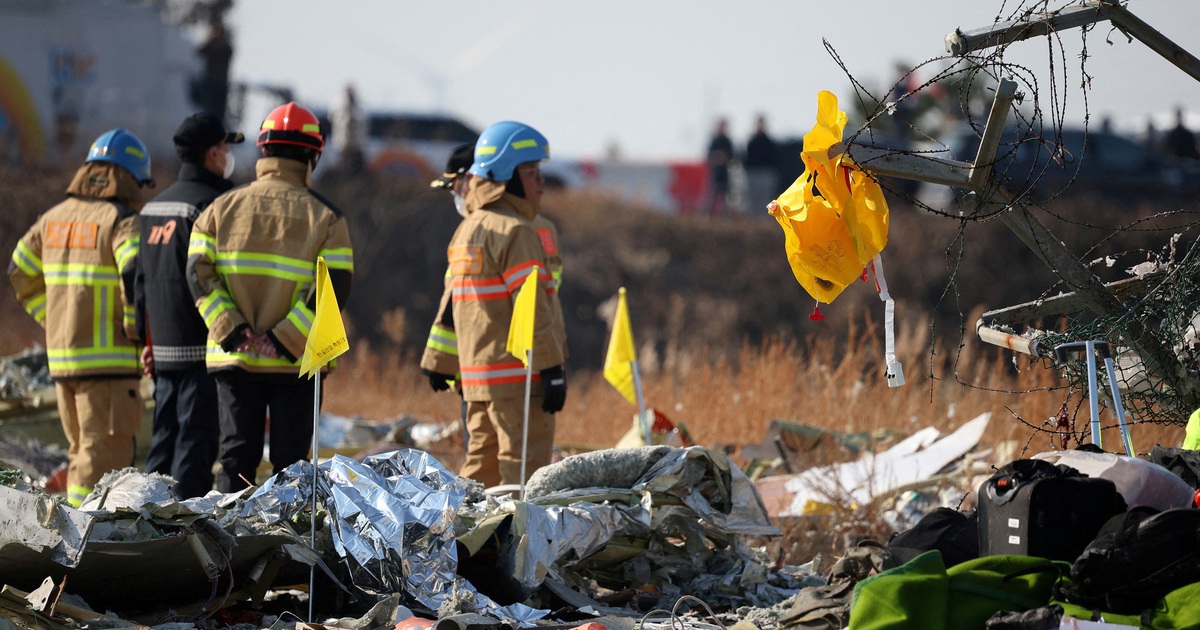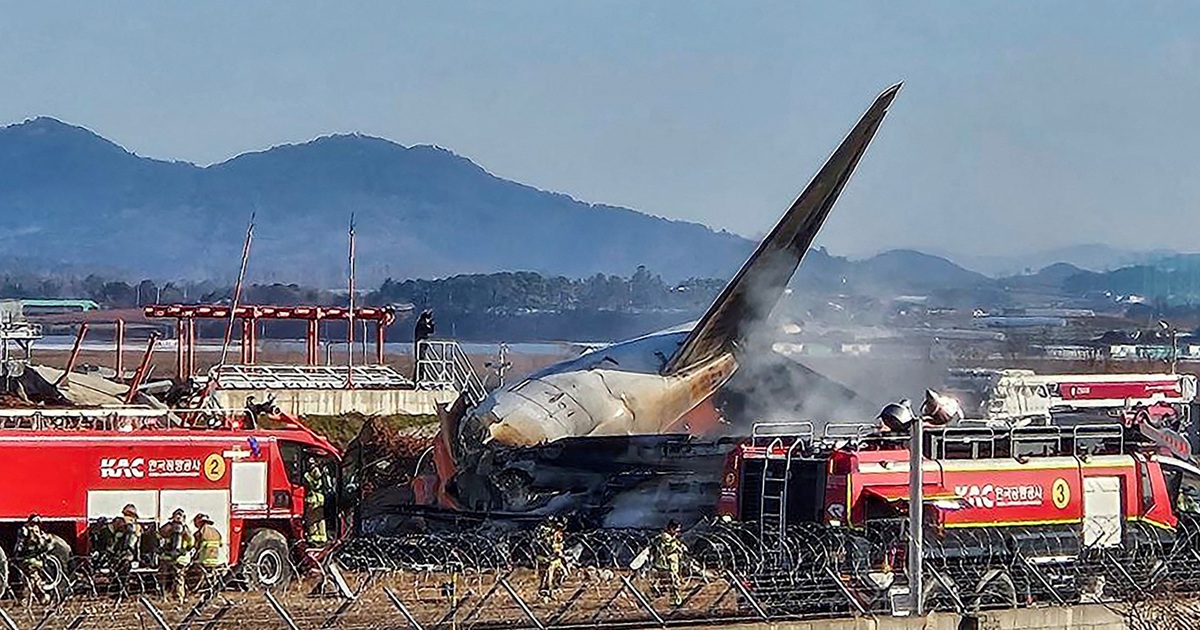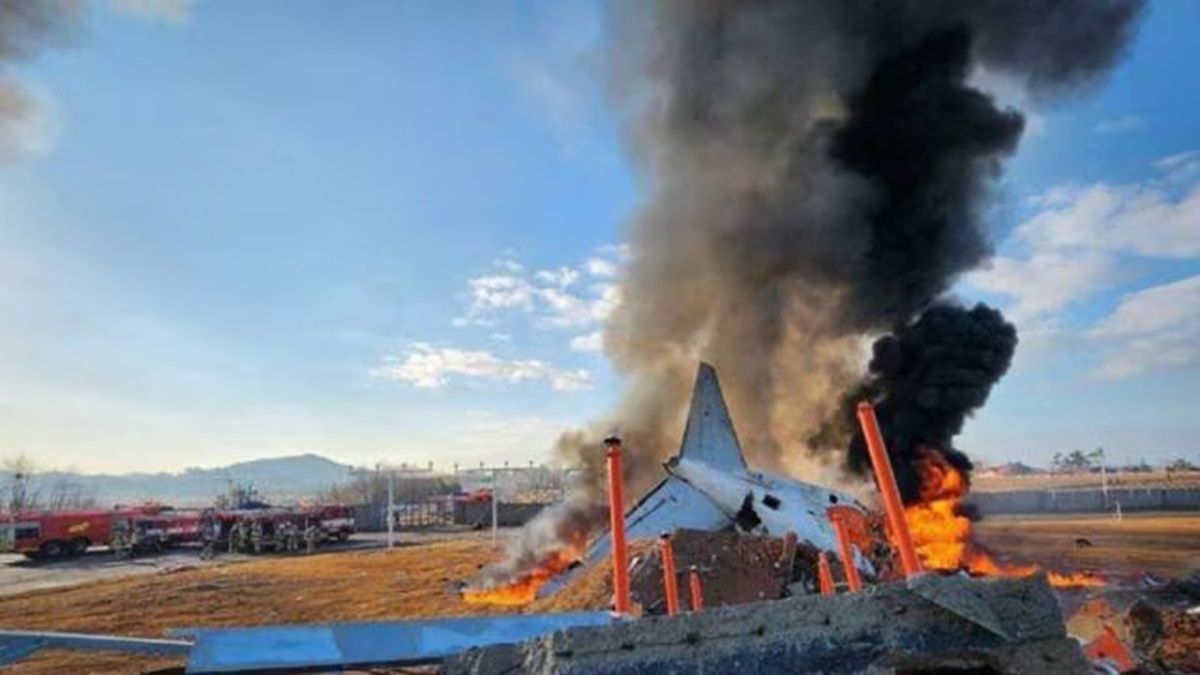It was an open secret that, in the face of international sanctions, the now overthrown Bashar al-Assad regime had turned Syria into a narco-state with the production and smuggling of Captagon, an easily and cheaply produced drug nicknamed “the poor man’s cocaine.” Also that Maher, the dictator’s little brother and today whose whereabouts are unknown, supervised a business that provided 2.4 billion dollars every year (just over 2.3 billion euros, according to research by the New Lines Institute in New York) to a system in which corruption was not the exception, but the norm. Maher El Asad commanded the Army’s Fourth Armored Division and was de factothe second most powerful man in the country. The rebel fighter Baker Sham knew all this, but he is still surprised by its magnitude, when he showed in a center on the outskirts of Damascus how decorative plastic fruits, rolls of LED lights or electrical generators. “What we found when we arrived would have sold for millions of dollars in the market,” says Sham, while picking up the tablets from the ground to convert the liquid mixture into pills and 100-gram bags of hashish. Assad’s Syria generated 80% of the world’s Captagon production, according to United Nations calculations.
The rebels found the clandestine drug laboratory in Maaroune, about 20 kilometers from the capital, Damascus. It is a large two-level industrial plant that until 2018 produced French fries and on whose floor you can today see thousands of Captagon pills, hastily abandoned before the rapid rebel advance, which ended the regime at the beginning of the month in just a week and a half. “Syria has become the largest capitagon producer on Earth […] and today, it will be purified by the grace of Almighty God,” said Ahmed Al Shara, the leader of Hayat Tahrir al Sham (HTS), the Islamic fundamentalist group that led the overthrow and that sees drugs as proof of the moral misery of the regime. The new authorities have set fire to large quantities of hashish and at least one million Captagon pills. They cost a few euro cents to produce. They were sold in a range of three to 20 euros.
One room has a black ceiling and smells of burning. “When we arrived, there was no one. “They had all fled shortly before, setting fire to the hashish they stored here,” says the fighter. It is not the only Captagon factory discovered after the express fall of the regime. Others were at a car sales company in the coastal city of Latakia, a building at the Mazzeh air base in Damascus or a mansion near the capital.
Captagon is the former trade name for fenetylline, a psychostimulant that began to be developed in Germany in the 1960s to treat narcolepsy, depression, and attention deficit hyperactivity disorder. It arrived illegally in the 2000s from Eastern Europe to the Middle East, changing the center of gravity. While most European countries had been prohibiting it since the eighties, discovering that it was very addictive, in the Middle East it was already becoming popular in this century, especially among combatants to face battle. For years it was known, in fact, as the drug of jihadists.
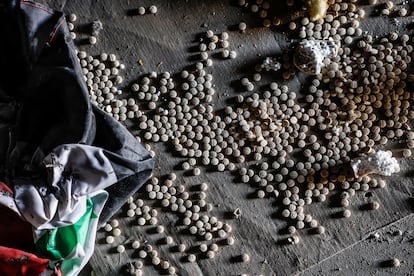
At the exit of the plant, a military vehicle with a machine gun and Aleppo license plate shows that the factory is now in the hands of the rebels. Next to it, there is a goods truck. He never transported the drugs in the boxes of tehina and nuts that were prepared.
For years, activities inside the plant were protected by two walls. One physical, made of concrete, and another, of silence, about a deal that Assad used with the Arab countries as a negotiating trump card to fulfill his dream: return to international forums as the virtual winner of the war and obtain the lifting of sanctions. In the last five years, the regime controlled 70% of the territory, including coastal ports and at least part of all the borders: Jordan, Turkey, Lebanon, Iraq and Israel. There are 370 kilometers of dividers.
The main destination was the Gulf, especially Saudi Arabia, where it reached up to 67% of the total. And the main passage routes, sea and land, were through neighboring Jordan and Lebanon. The drug sometimes made a detour through southern Europe before reaching the Gulf, but it rarely stayed there. It usually ended up in Arab countries, so Captagon traffic had less impact on the global conversation.
Amman and Riyadh were concerned and asked for help from their allies, the United States and the United Kingdom, which imposed sanctions in 2022 on businessmen and other people in the regime involved in the trafficking of Captagon. The narco-business that El Assad promoted hit his youth and affected his borders. Saudi authorities admitted years ago that the main consumers were between 12 and 22 years old.
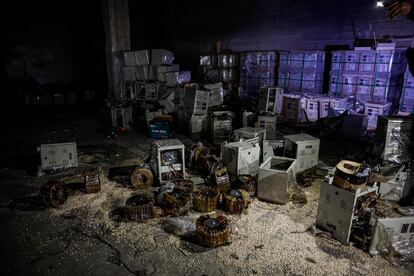
In an interview in the Jordanian capital in October 2023, a young former Captagon addict, Mohamed, recounted his experience. Without giving his last name or being photographed, he said that he started taking it at university, where it was very popular among young people from different social classes. For the humblest, it was relatively cheap. For those who, like him, came from wealthier families, it was accessible. Some people took them especially for sex (because the idea that it improved duration and performance became widespread) and to perform in studies. It was common to endure binge studying before an exam, he said. It was also popular among taxi drivers and VTC drivers who worked the night shift.
Riyadh went so far as to ban all imports of Lebanese products in 2021, to prevent the clandestine entry of Captagon. That year, he confiscated 86 tons of amphetamines, double the previous year. The Arab countries, which had begun the normalization process of Assad, raised the issue in conversations with their Syrian interlocutors and received promises that later came to nothing.
May 2023 marked a turning point. The Jordanian army launched its first aerial bombardments inside Syria to stop it. In one, he killed Marai al-Ramthan, a known drug criminal who coordinated trafficking.
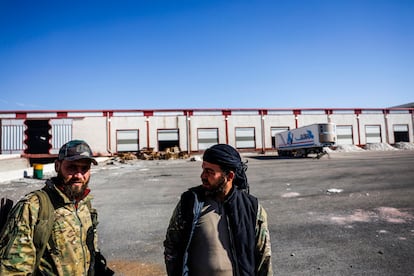
That same month, the Arab League re-accepted Syria, 12 years after suspending it, for its repression of peaceful protests – within the framework of the Arab Spring – that led to almost 14 years of war. Assad was the same Assad that 2011 and the day he returned – relaxed and smiling – to the Arab League, but the apparent stabilization of the front weighed more on the Arab countries (the rebels were secretly preparing the offensive in Idlib), the haste to get rid of the refugees, the realpolitik,the desire to combat the influence of Iran and, of course, the Captagon. A ministerial contact committee was created with representatives from Egypt, Iraq, Jordan, Saudi Arabia and Syria with four tasks. Among them, reducing the production and smuggling of Captagon.
Traffic continued as if nothing had happened. It has only collapsed now, with the fall of the regime. A senior Jordanian military commander explained to this newspaper last year how he sneaked in. The main route was hidden in legal export shipments. This is how he left the Maaroune factory. But as surveillance grew, drug traffickers also resorted to formulas such as hiding it inside drones and flying them, flying at low altitude, to the other side of the border with Jordan.
The experts spoke of a decentralized structure, with different actors getting rich in parallel, without a clear hierarchy. Saudi Arabia, for example, seized eight million Captagon pills the same month it hosted the Arab League summit that readmitted Syria.
The fall of the regime has dealt a mortal blow to Captagon traffic, but the risk now – with demand and routes generated – is that it will simply be diverted. For example, in neighboring Iraq, where authorities seized 4.1 tons of Captagon pills in 2023, almost 34 times more than four years earlier, according to a report by the United Nations Office on Drugs and Crime. The report recalls that Iraq can “become an important node” of global drug trafficking, since it is located at the intersection of the main routes. At the moment, the number of people in the country with disorders derived from drug use doubled between 2017 and 2021.

